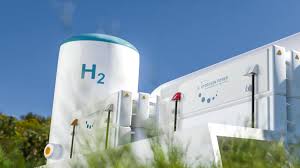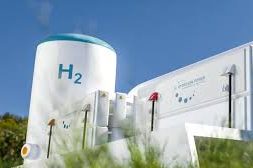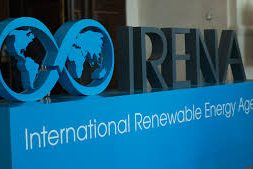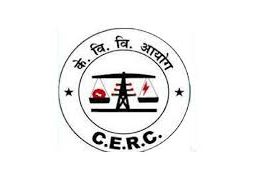
India Accelerates Clean Energy Transition with Strong Push for Hydrogen and Biofuels: Puri – EQ
In Short : Union Minister Hardeep Singh Puri stated that the Centre is prioritizing hydrogen and biofuels to strengthen India’s clean energy roadmap. He highlighted their role in reducing fossil fuel dependence, curbing carbon emissions, and creating sustainable growth opportunities. With a focus on innovation and investments, India aims to make hydrogen and biofuels central to its net-zero vision by 2070.
In Detail : Union Minister Hardeep Singh Puri has reaffirmed the government’s strong focus on alternative fuels such as hydrogen and biofuels to accelerate India’s energy transition. He emphasized that both technologies hold immense potential in reducing the country’s reliance on fossil fuels. With rising global energy demands, India aims to ensure sustainability while addressing long-term energy security.
Hydrogen, often termed the “fuel of the future,” is being actively developed with policy and financial support. The government’s National Green Hydrogen Mission is designed to create production capacity and infrastructure to make India a global leader. Puri highlighted that this initiative would also generate jobs and drive industrial innovation across multiple sectors.
Similarly, biofuels are gaining importance as India looks to scale up ethanol blending and promote biodiesel adoption. Puri explained that biofuels not only reduce carbon emissions but also support farmers by creating demand for agricultural residues. This initiative directly links clean energy with rural prosperity.
The minister stressed that collaboration with industries and international partners will be key to scaling hydrogen and biofuel adoption. Investments in technology, R\&D, and pilot projects are already underway to expand India’s clean energy ecosystem. The government sees this as an opportunity to attract global capital and expertise.
India has already demonstrated its commitment to clean fuels through its rapid adoption of ethanol blending programs. The blending target of 20% ethanol in petrol by 2025 is expected to significantly cut oil imports. Hydrogen and biofuels are now seen as complementary to solar, wind, and other renewables.
Puri also mentioned that hydrogen can revolutionize sectors like transportation, heavy industries, and fertilizers. Pilot projects for hydrogen buses and industrial use cases are already being tested. By scaling such projects, India can reduce dependence on imported fossil fuels while meeting its climate commitments.
Biofuels, on the other hand, offer a more immediate and scalable solution. India’s abundant agricultural waste provides a steady feedstock supply, which can be utilized for ethanol and biodiesel production. This ensures not only cleaner fuels but also economic opportunities for rural communities.
The government is actively designing supportive policies, financial incentives, and public-private partnerships to accelerate the adoption of both hydrogen and biofuels. Puri highlighted that this is part of India’s broader strategy to meet its net-zero target by 2070. Industry participation will play a vital role in ensuring success.
Overall, the push for hydrogen and biofuels reflects India’s commitment to a balanced, multi-fuel strategy for clean energy. With strong policy backing and private sector involvement, these fuels are set to play a central role in decarbonizing the economy. Puri concluded that the future of India’s energy lies in innovation, resilience, and sustainability.















